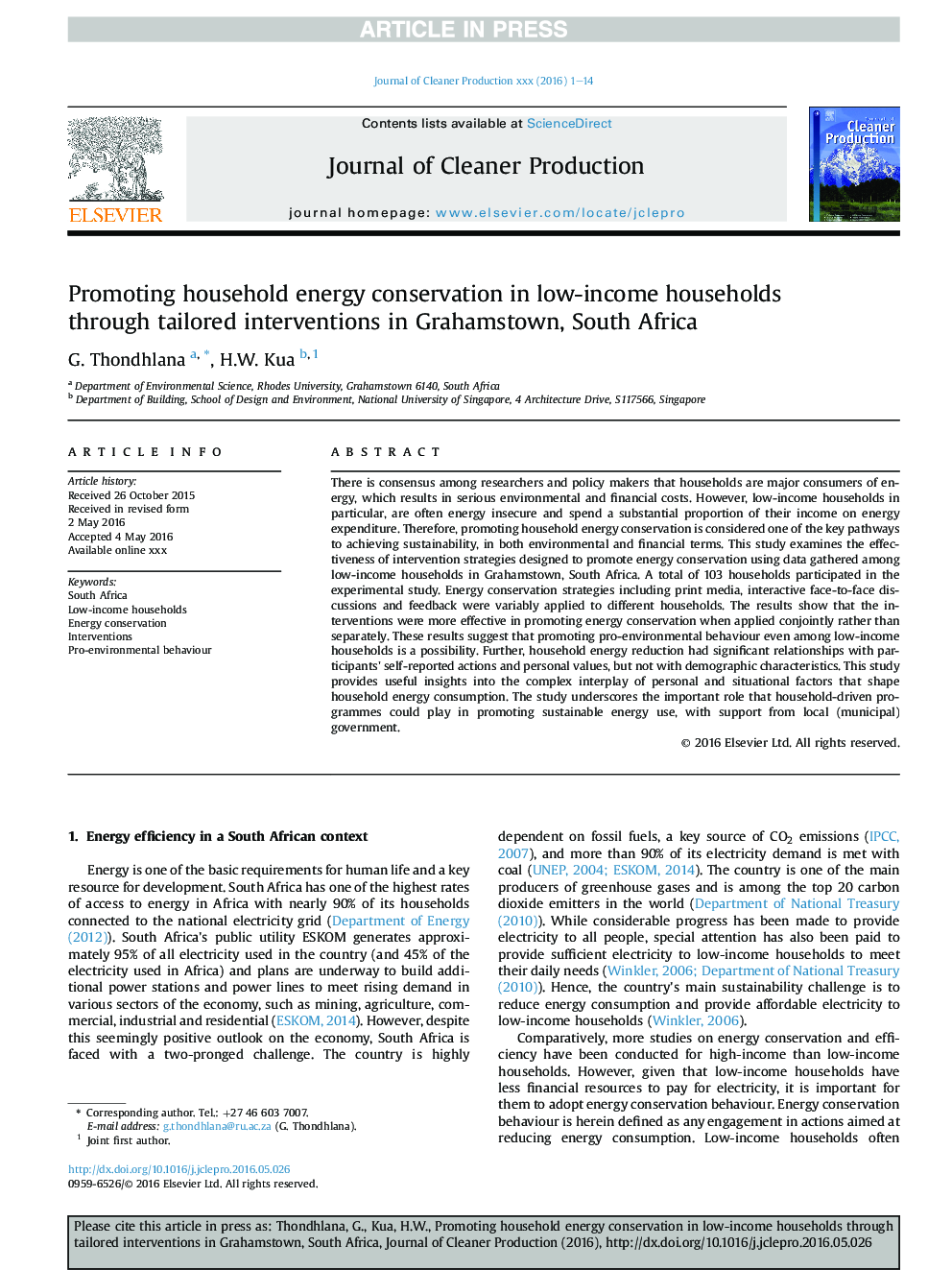| Article ID | Journal | Published Year | Pages | File Type |
|---|---|---|---|---|
| 8101610 | Journal of Cleaner Production | 2016 | 14 Pages |
Abstract
There is consensus among researchers and policy makers that households are major consumers of energy, which results in serious environmental and financial costs. However, low-income households in particular, are often energy insecure and spend a substantial proportion of their income on energy expenditure. Therefore, promoting household energy conservation is considered one of the key pathways to achieving sustainability, in both environmental and financial terms. This study examines the effectiveness of intervention strategies designed to promote energy conservation using data gathered among low-income households in Grahamstown, South Africa. A total of 103 households participated in the experimental study. Energy conservation strategies including print media, interactive face-to-face discussions and feedback were variably applied to different households. The results show that the interventions were more effective in promoting energy conservation when applied conjointly rather than separately. These results suggest that promoting pro-environmental behaviour even among low-income households is a possibility. Further, household energy reduction had significant relationships with participants' self-reported actions and personal values, but not with demographic characteristics. This study provides useful insights into the complex interplay of personal and situational factors that shape household energy consumption. The study underscores the important role that household-driven programmes could play in promoting sustainable energy use, with support from local (municipal) government.
Keywords
Related Topics
Physical Sciences and Engineering
Energy
Renewable Energy, Sustainability and the Environment
Authors
G. Thondhlana, H.W. Kua,
